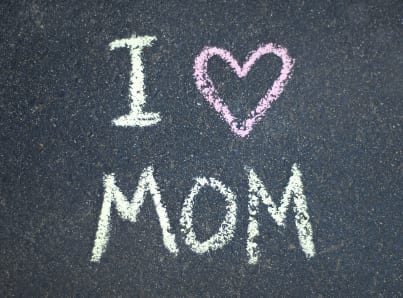Recently I wrote about the shameful state of women’s health care in America and how America’s broken health care system affects women.
National Association of Mothers’ Centers Advocacy Coordinator and mothers’ rights advocate, Valerie Young, is a bright light and constant champion for improving the status of women and care giving in America. Valerie has guest posted for Breathing In This Life, a blog of support for mothers, many times, and I echo her sentiment of needing a Mother’s Bill of Rights in the US, something I wrote about in 2010.
I encourage you to take some time to revisit these posts. Before 2009 I had no idea of the state of mothers in the US. After reading Ann Crittenden’s book, The Price of Motherhood, my world was rocked. I really had no idea how mothers bear the brunt in America, and end up living at poverty level in their retirement years, because of it.
Now I realize that if I don’t try to “be the change,” and advocate for mothers’ rights, at any level, then not only do I have no right to complain about discrimination against me as a mother in society, but I run the grave risk of leaving a future generation of daughters and mothers in the same horrible predicament as today’s mothers.
The United States is not a leader in birth outcomes or maternal policy. In fact, we scrape the bottom of the international barrel.
American infant and maternal morality rates have been steadily rising as births have become more medicalized, i.e. death rates have been rising for moms and babies, right alongside the skyrocketing C-section rates. Above 30% (somewhere around 33% and even higher in certain areas and hospitals in the US), the C-section rate is more than 200% higher than the World Health Organization recommends as safe for mother and baby.
But here are more shocking statistics from the 2011 State of the World’s Mothers report. Get the full report.
Excerpt from the 2011 State of the World’s Mothers:
Why doesn’t the United States do better in the rankings?
The United States ranked 31st this year based on several factors:
One of the key indicators used to calculate wellbeing for mothers is lifetime risk of maternal mortality. The United States’ rate for maternal mortality is 1 in 2,100: the highest of any industrialized nation. In fact, only three Tier I developed countries: Albania, the Russian Federation and Moldova: performed worse than the United States on this indicator. A woman in the U.S. is more than 7 times as likely as a woman in Italy or Ireland to die from pregnancy-related causes and her risk of maternal death is 15-fold that of a woman in Greece.
Similarly, the United States does not do as well as most other developed countries with regard to under-5 mortality. The U.S. under-5 mortality rate is 8 per 1,000 births. This is on par with rates in Latvia. Forty countries performed better than the U.S. on this indicator. At this rate, a child in the U.S. is more than twice as likely as a child in Finland, Greece, Iceland, Japan, Luxembourg, Norway, Slovenia, Singapore or Sweden to die before reaching age 5.
Only 58 percent of children in the United States are enrolled in preschool: making it the fifth lowest country in the developed world on this indicator.
The United States has the least generous maternity leave policy, both in terms of duration and percent of wages paid, of any wealthy nation.
The United States is also lagging behind with regard to the political status of women. Only 17 percent of congressional seats are held by women, compared to 45 percent in Sweden and 43 percent in Iceland.
In response to America’s continually poor showing in world indices, and their poor treatment of mothers and babies, in addition to the fact that nothing is being done to change the (yet) political landscape of mothers’ rights, the National Association of Mothers’ Centers issued a Declaration of Mothers’ Rights. Unfortunately, the Declaration is still as relevant politically and economically, if not more so, as it was when it was issued in 2000.
Similarly, I published a post of a similar nature, before I was aware of the NAMC Declaration, in 2010. Read A Mother’s Bill of Rights.
Activism on the part of everyone, not just mothers, can ensure our daughters will have a more equitable path in the workplace and at home. As it stands now, we are women without history, and we have a long way to go to before we can say we have a ‘fair shot’ in the political, financial, and corporate arenas.





